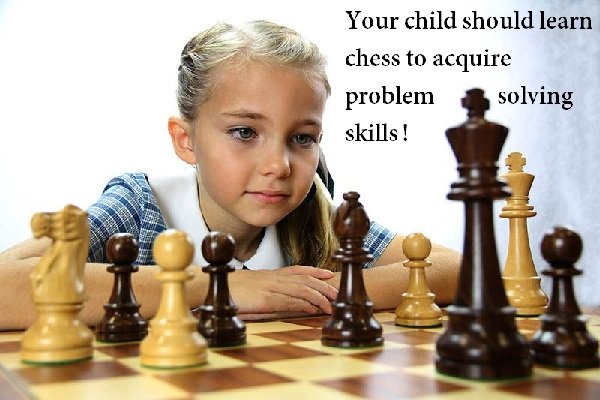Have you ever been thrashed at a game of chess? Or does your FEAR of losing make you steer clear of chess entirely? Everyone should experience the discipline of chess.
Chess teaches one how to destress if handled well; learning as an art form is, at worst, demanding that we maintain a calm indifference when attacked by the stings of an opponent's incredible moves. At best, we should admire and be grateful that we are 'losing' a game but learning to strengthen our skills. KUDOS to our TEACHERS!
When an opponent catches us off guard with a great move we missed, we should pause and allow ourselves to take a calm deep breath before reacting, as immediate or reflexive reactions are often self-defeating. If we take a moment to compose ourselves, we will be more free to choose a response appropriate to the situation. Don't curse the darkness. Light a candle.
If you've not read Viktor E. Frankl's "Man's Search for Meaning," I strongly suggest you do. He wrote, “Between stimulus and response, there is a space. In that space is our power to choose our response. In our response lies our growth and our freedom.”
Playing chess gives the vast majority of players some beautiful opportunities for emotional and mental growth. Chess can and should teach us Self Control.
In his Epictetus’s work, Enchiridion, he said, “Remember that you are insulted not by the person who strikes or abuses you [beats you at chess] but by your opinion that these things are insulting [discouraging]. So whenever another provokes you…try above all…not to allow yourself to be carried away by the impression; if you delay things and gain time to think, you’ll find it easier to gain control of yourself.”
I had to lose a lot of games before my win ratio improved. I still lose more than I win. I'm always experimenting, taking risks, and often making moves intuitively. Most people think intuition has no place in chess, but I'm afraid I have to disagree. What if our subconscious mind can see things that our logically conscious mind cannot?
Years ago, I was mad about something and expressed it aloud; my martial arts Sensei, whom I deeply respected, said, "Only dogs get mad." That comment made me mad, but I humbled myself and asked what he meant. He metaphorically explained how a dog 'reacts' if you place its tail in a meat grinder. When it feels the pain, it will spin around to attack the object causing pain and, in so doing, gets its face chewed up. A human, he explained, should look at what's causing pain and then 'act' (not react) to remedy what's causing pain.
He also told me that when people lose their cool in the boxing ring, they make mistakes and pay the price by getting hurt needlessly or even losing the match. It's okay to get beat fair & square, but to beat oneself is silly at best.
Anger rarely has any place in chess unless you've mastered your anger and can 'act' thoroughly as a person capable of not making tainted decisions.
I remember playing in a chess tournament against someone passing the foulest gas imaginable. He would hold it until I was ready to move, then I would smell the fart and, frankly, wanted to knock him on his butt. However, my chess teacher trained me to practice chess by deliberately distracting me with the most outlandish behavior. As a result, I didn't let my anger reduce me to a rash chess player.
I managed to eke out a win, and I was VERY relieved to see his frustration at losing despite his vile efforts to secure a cheap victory. In hindsight, I was pretty happy about the training distractions. DON'T LET YOUR ANGER TAKE YOU DOWN!
ACTing like a stone is one of the more powerful ways to respond to farts. This involves acting to the person's cheating as a stone would respond. In other words, do not react at all. We let their farts fall on deaf ears and noses, go about making the next right move, and even pretend the other person does not exist. This response is effective for two reasons. Firstly, when someone insults or ridicules us, one of the things they want is to provoke a reaction. They want to feel their farts have power over us. In listening like a stone, we refrain from satisfying their will to power and show them, by doing nothing, that their provocations are petty and unable to move us.
Moreover, as our thoughts and emotions are influenced by our ACTions, we become stone-like internally in responding like a stone. Consider this quote:
“It is the mark of a great mind to rise above insults; the most humiliating kind of revenge is to treat your adversary as not worth taking revenge upon…The great and noble are those who, like a lordly beast, listen unmoved to the barking of little dogs.” Seneca, On Anger
Epictetus, in his Discourses, said something similar. “What does it mean…to be abused? Go up to a stone and subject it to abuse; what effect will you produce? Well then, if you listen like a stone, what will anyone who abuses you be able to achieve?”
Get it?
Another strategy is to respond to your opponent with humor. Humor diffuses the tension of any given problem; it shows the other person we will not lower ourselves to their level and respond to their stinky vileness nor feed the flames of their disagreeable behavior. An incredibly witty remark can even turn an enemy into a friend. But perhaps most importantly, humor breeds your internal power – as it is the mark of the powerful to be amused by those mistreating them.
Or, as Seneca observed:
Seneca, On the Constancy of the Wise Man, “Some are offended if a barber jostles them; they see an insult in the surliness of a doorkeeper, the arrogance of an attendant, the haughtiness of a valet. What laughter such things should draw! With what satisfaction should your mind be filled when you contrast your peace of mind with the unrest into which others blunder!” When you get upset, the mathematical likelihood of making a BLUNDER on the board increases.
Once in a while, hopefully rarely, we may get busted for being petty or emotional during a game. I again quote Epictetus, from Enchiridion: “If you hear that someone has spoken ill of you, do not make excuses about what was said, but answer: “Evidently he didn’t know about my other faults, or he wouldn’t have spoken only of the ones he did.” Never take yourself too seriously.
Control yourself. There's no such thing as reality. There's only perception. Have a profound response based on choice. Remember, only dogs get mad.









